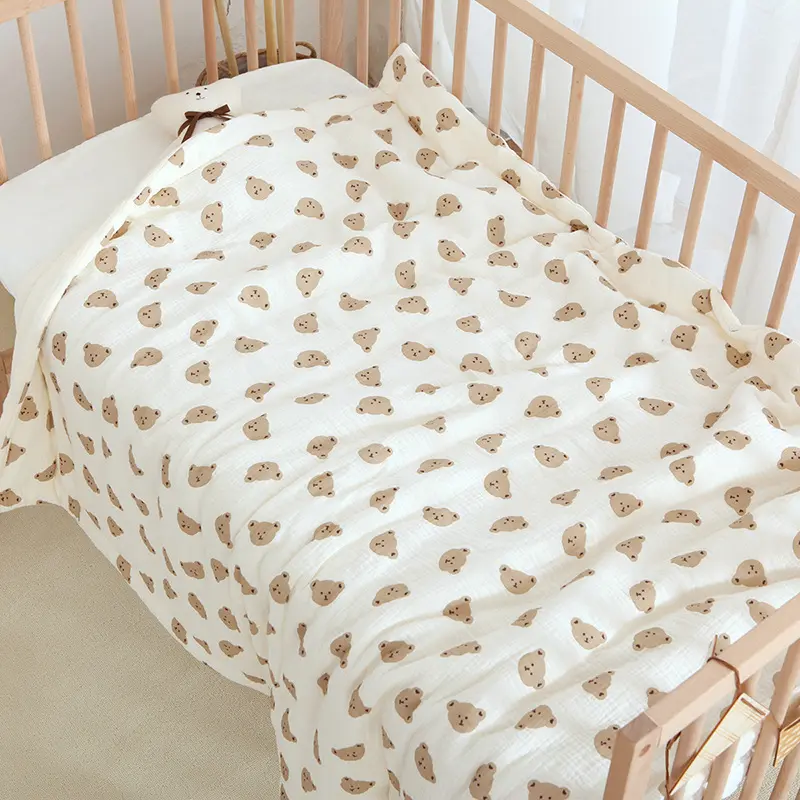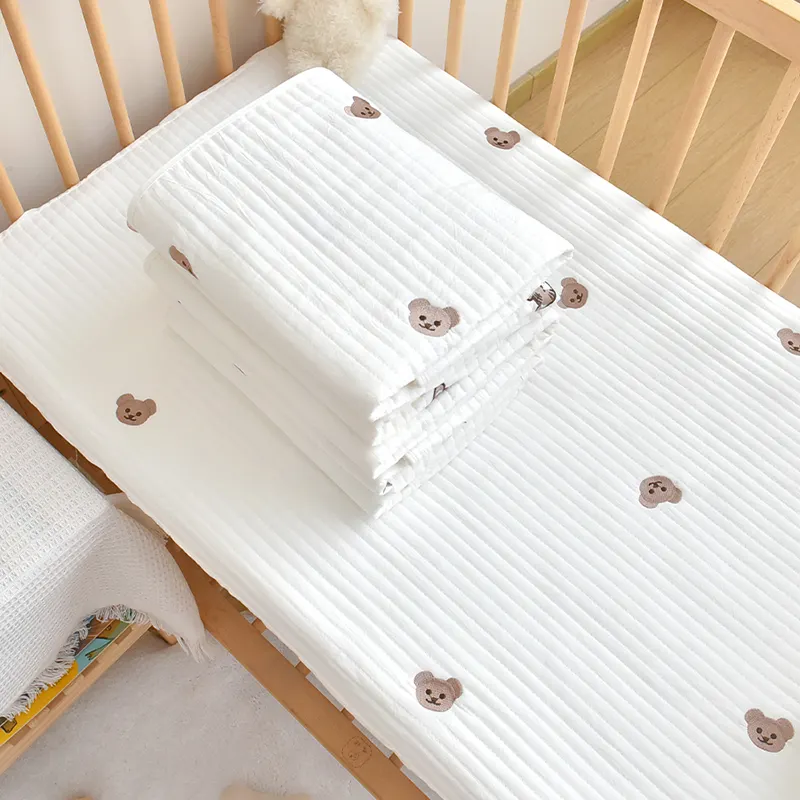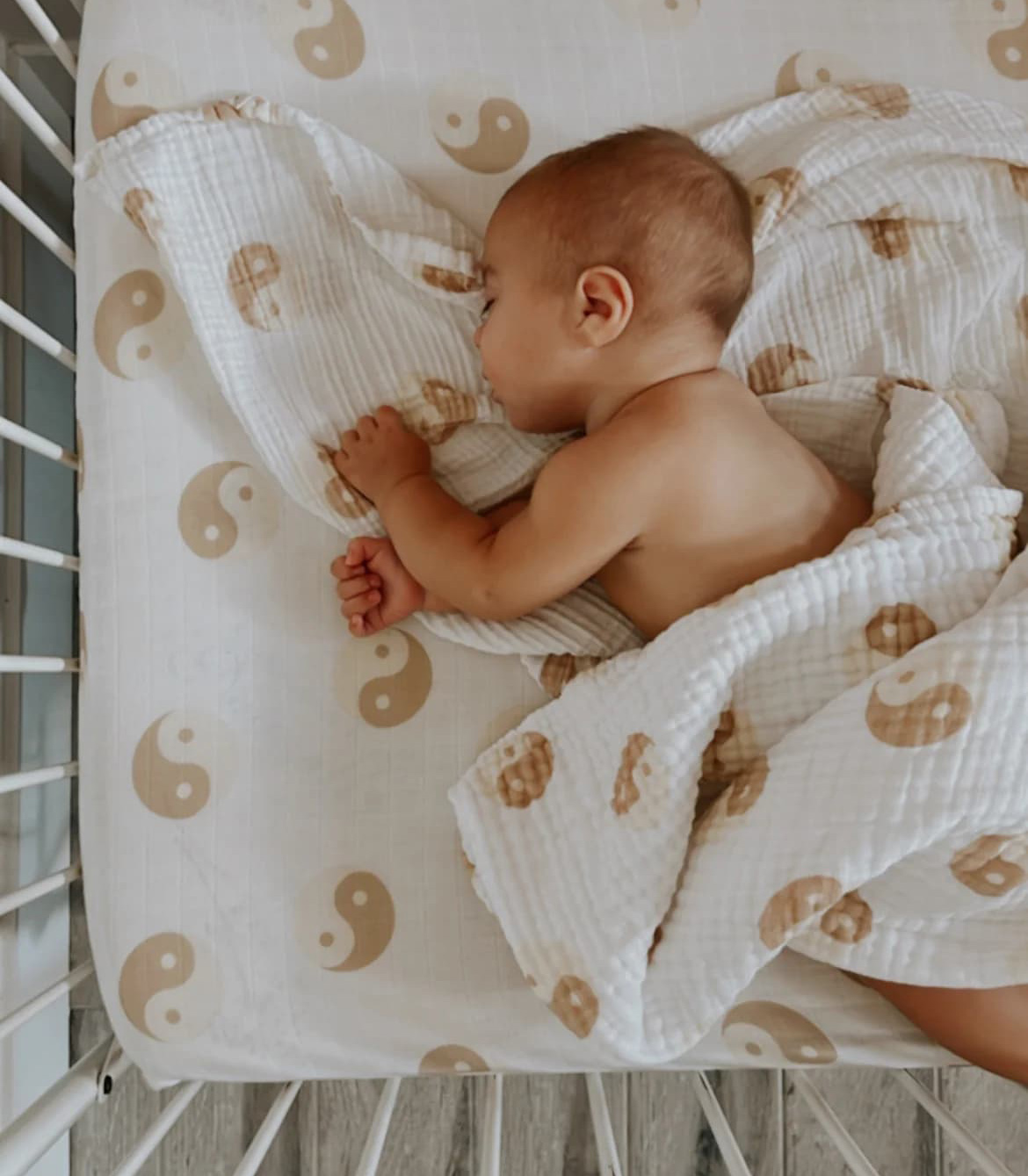Choosing the right baby bedding fabric is one of the most critical decisions for ensuring infant safety, comfort, and healthy development. Whether you’re a retailer launching a nursery collection, a maternity hospital sourcing bulk supplies, or a hospitality brand expanding into family-friendly accommodations, understanding what fabrics are most suitable for babies is essential.
This guide outlines recommended materials, performance criteria, and key considerations to help you make informed sourcing and product development decisions.
Why Fabric Selection Matters for Babies
Infants have delicate, sensitive skin that is highly susceptible to irritation, overheating, and allergic reactions. Suboptimal bedding materials can contribute to:
- Skin rashes and eczema flare-ups
- Breathing difficulties due to lint or chemical residues
- Overheating, which is linked to higher SIDS risk
As a result, the ideal baby bedding fabric should be:
- Soft and non-irritating
- Breathable and moisture-wicking
- Free from harmful chemicals and dyes
- Easy to clean and durable
Top Recommended Baby Bedding Fabrics
1. Organic Cotton
Best for: Universally safe, breathable everyday use
Organic cotton is widely considered the gold standard for baby bedding. Certified organic options are grown without pesticides and processed without harsh chemicals.
Key Benefits:
- Soft and gentle on sensitive skin
- Highly breathable to reduce overheating
- Machine washable for hygienic maintenance
- GOTS-certified options ensure full traceability
Ideal Products: Fitted crib sheets, swaddles, lightweight quilts

relation product:Organic Cotton Thickened Gauze Baby Quilt
2. Bamboo Viscose
Best for: Thermoregulation and antimicrobial performance
Bamboo-derived fabrics are prized for their silky feel and natural ability to regulate moisture and temperature.
Key Benefits:
- Exceptionally smooth and hypoallergenic
- Wicks moisture away to keep baby dry
- Resists bacterial growth and odors
- Sustainable production with low environmental impact
Ideal Products: Swaddle blankets, summer quilts, bassinet sheets
3. TENCEL™ Lyocell
Best for: Eco-luxury softness and moisture management
TENCEL™ Lyocell is made from sustainably harvested eucalyptus pulp. It offers a premium alternative to cotton with outstanding breathability and a cool-to-the-touch feel.
Key Benefits:
- Smooth, non-irritating surface
- Excellent moisture absorption and release
- Naturally inhibits bacterial proliferation
- Biodegradable and eco-friendly
Ideal Products: Crib sheets, lightweight blankets, pillowcases
4. Muslin Cotton
Best for: Lightweight breathability and swaddling
Muslin cotton is an open-weave, ultra-soft material ideal for warm climates and layering.
Key Benefits:
- Airy and highly breathable
- Softens further with washing
- Easy to pack and versatile for multiple uses
Ideal Products: Swaddle wraps, burp cloths, stroller covers

relation product:Soft Cotton Muslin Crib Bedding Set
5. Jersey Knit Cotton
Best for: Stretch and comfort
Jersey knit offers a gentle stretch that helps crib sheets fit snugly and comfortably without wrinkling.
Key Benefits:
- Naturally elastic for secure crib fit
- Soft, T-shirt-like texture
- Retains shape after washing
Ideal Products: Fitted sheets, mattress protectors, crib skirts
Certifications and Standards to Look For
When sourcing or developing baby bedding, prioritize suppliers who can demonstrate compliance with recognized certifications:
- OEKO-TEX® STANDARD 100: Ensures textiles are free from over 100 harmful substances
- GOTS (Global Organic Textile Standard): Verifies organic production and safe processing
- CPSIA Compliance (US): Confirms products meet safety standards for children
B2B Sourcing Considerations
| Criteria | Why It’s Important |
|---|---|
| Shrinkage Control | Frequent laundering requires dimensional stability |
| Colorfastness | Prevents dye transfer onto sensitive skin |
| Softness Retention | Ensures comfort over the product lifespan |
| Production Scalability | Enables consistent quality in bulk orders |
Final Thoughts
The best baby bedding fabrics combine natural fibers, breathable design, and certified chemical safety. Materials such as organic cotton, bamboo viscose, and TENCEL™ offer the optimal balance of comfort, sustainability, and protection.
For brands and B2B buyers, aligning your product lines with these criteria can enhance customer trust and meet the growing demand for premium, safe nursery textiles.
Looking to source certified baby bedding in bulk? Partner with Yintex for customizable, high-quality solutions designed for modern families.


Leave a Reply